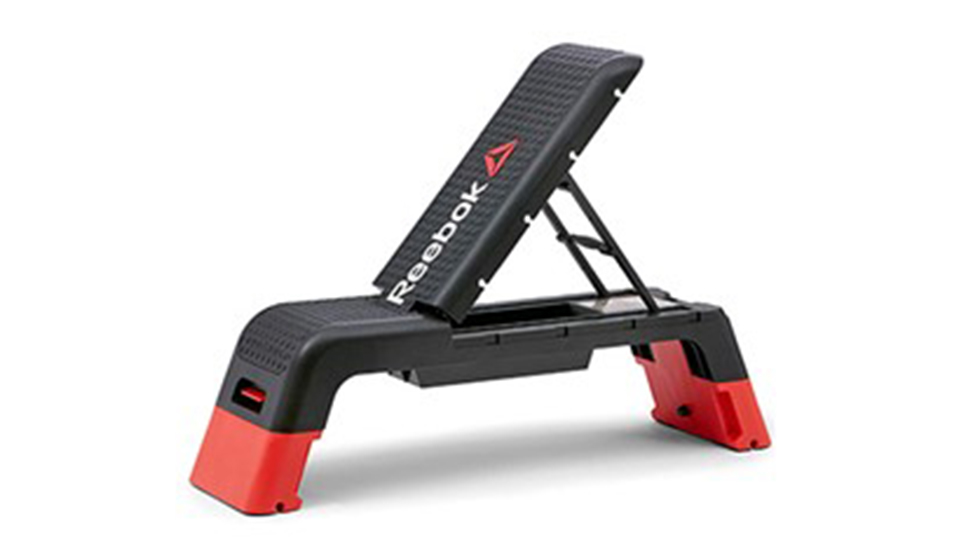Ross came to Loughborough as a mature student in the first intake of Loughborough’s BSc Sports Technology degree. He had read about the opportunity whilst sitting in the reception of Dunlop Slazenger before he pitched his first concept for a fitness product. At the time, Dunlop Slazenger were sponsoring the programme, and this drew Ross to apply.
Ross said:
“Applying to join the program, I had the good fortune to meet Professor Mike Caine, who with Professor Jones and others, were responsible for setting up the new sports technology degree. During my interview with Mike, we were talking through product concepts. One idea struck Mike as particularly interesting.”
The idea, called The Box, would later be developed into The Deck. The Box was designed to facilitate high intensity circuits that were being performed in fitness studios. Ross had observed that equipment was often misused to achieve desired results in the gym, and this led to the development of the product.
As a result, Ross conceived a self-contained and multi-functional fitness platform that would be both a step, bench, and storage solution in one product. He then produced a fiberglass prototype. The original incarnation was closer to the current trend for HIIT benches, but at the time Mike could see the potential and they agreed to work on it together.
Their plan to commercialise The Box led them to LUEL who advised them to form a company to support the project. They applied for an award from the Department for Trade & Industry; this was granted and Progressive Sports Technologies Ltd was founded in 2001. Through the award, Ross and Mike were able to bring in additional expertise and develop prototypes of the product, refining the concept further.
Ross explains:
“As we succeeded in defining the products’ performance attributes, proven with prototypes and in-depth user testing, we looked to engage externally with a design agency to build the final form. This was PDD, based in London, who took our research and development and embodied The Deck as we know it today. The Deck lost the storage function of The Box but proved a more compact and mobile product. The final design was patented, and the design registered.”
They engaged in many manufacturer meetings, taking place across the US and Europe. They spoke with key brands such as Nike, Precor, and Technogym. These efforts paid off, and they were contacted by Reebok USA, who wanted to take the product to market through their fitness equipment licensee, RFE, based in Milton Keynes. From there they worked in partnership with RFE to finalise the design for the product with their Taiwanese factory. The first Reebok Deck was moulded and sold in 2004.
Ross summarises his innovation story stating:
“The Deck was a little before its time, taking a while to build a following among fitness instructors. The feedback from early adopters was superb. The product was robust, easy to use and highly functional, as intended. Today, the Deck has successfully forged its own product category and its continued growth year on year is testament to the vision of everyone involved. With its success came poor quality copy-cat products created by unscrupulous businesses. We continue to pursue and remove copy product with our granted patents.”
“The innovation story is one of perseverance, vision, friendship and chance. It took well over five years to get from my first sketch to retail product and another ten for it to really gain traction. It took others to share the vision and provide their expertise and energy to help in the product success. It created lifelong friendships but was often the product of chance being met with energy and enthusiasm. Thank you to Loughborough University and the LUEL team for the continued support.”
